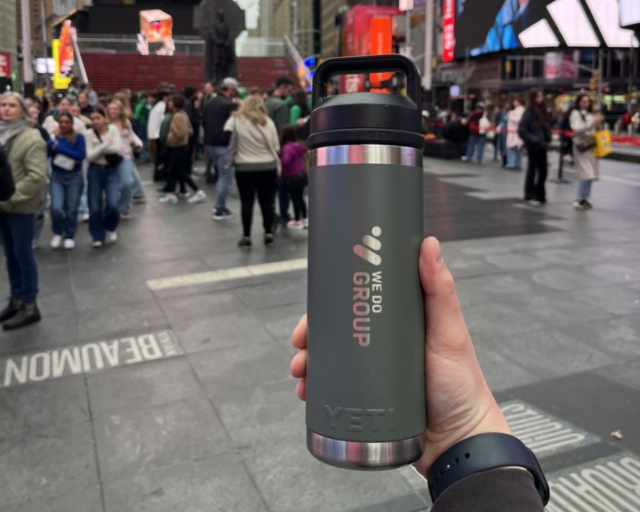Hint: If You Think Salary Alone Will Seal the Deal, Think Again.
Once upon a time, hiring was simple:
- Offer a decent salary.
- Give them a job title that sounds important.
- Hope they stay for five years.
Fast forward to 2025, and finance candidates have more choices than ever. They’re not just looking at the pay packet—they’re weighing up the entire package.

So, what actually makes candidates say “yes” to an offer these days?
(Hint: If your job ad still just says “competitive salary and benefits,” you’re already behind.)
1. Salary Still Matters—But So Does Transparency
Let’s be real—candidates aren’t working for fun. Money still talks.
But here’s the difference in 2025:
- They won’t waste time applying if the salary isn’t listed.
- They won’t play guessing games about pay bands.
- They will walk away if another company is more upfront.
The mistake businesses make:
- Saying “salary DOE” (depends on experience)
- Waiting until final interviews to discuss pay
- Hoping that vague “competitive salary” wording will be enough
What to do instead:
✅ List salary ranges on job ads. If it’s £80K-£90K, say it.
✅ Benchmark salaries properly (hello, We Do Benchmark!) so you know where you stand.
✅ Offer total transparency early—no surprises at offer stage.
Rule of thumb: If candidates don’t know the salary by the first interview, you’re losing them to competitors who are more upfront.
2. Work-Life Balance Is Non-Negotiable
Long hours and burnout culture? That’s a hard pass.
Today’s candidates want to work hard, but they won’t sacrifice their:
- Time with family.
- Freedom to travel.
- Mental health.
If your business is still operating on the “we expect 60-hour weeks” mentality, you’ll struggle to attract the best finance talent.
What to do instead:
✅ Be flexible where you can. Hybrid working, early finishes, or remote options matter.
✅ Encourage realistic workloads. No one wants to inherit three people’s jobs after a restructure.
✅ Showcase how you support employees. Gym memberships? Mental health days? Extra holidays? These things make a difference.
Rule of thumb: If your competitors are offering work-life balance and you’re not, you’ll struggle to hire top talent.
3. Career Growth & Progression Need to Be Crystal Clear
Biggest hiring turn-off? A job that looks like a dead end.
Great finance candidates aren’t just thinking about the next 6 months—they’re looking at the next 3-5 years. If they don’t see progression, learning, or leadership opportunities, they won’t be interested.
What to do instead:
✅ Sell the career path, not just the job. What’s the next step after this role?
✅ Be clear about development opportunities. Can they get mentoring, training, or new responsibilities?
✅ Show examples of internal promotions. “Our last FP&A Manager is now Finance Director” is a powerful statement.
Rule of thumb: If candidates don’t know where they can go next, they’ll look elsewhere.
4. Culture (And No, That Doesn’t Just Mean “We Have a Ping Pong Table”)
Candidates care about where they work—not just what they do.
If your company is all about micromanagement, unrealistic targets, and zero recognition, candidates will find out.
If your leadership team is invisible, they’ll notice.
If your Glassdoor reviews are bad, they’ll check.
What to do instead:
✅ Define your company culture properly. What makes your business a great place to work?
✅ Showcase your leadership team. Great candidates want to know who they’ll be working for.
✅ Encourage employee advocacy. If your team loves working there, they’ll help attract new hires.
Rule of thumb: If your company’s culture is just “we have a great team,” you’re not saying anything meaningful.
5. Perks That Actually Matter (Not Just Free Coffee)
“Great benefits” means different things to different people.
What doesn’t cut it anymore?
- A fruit basket in the kitchen
- A beer fridge on Fridays
- Saying “we do team lunches”
What candidates actually care about:
- Performance-based bonuses
- Equity or profit-sharing opportunities
- Extra holidays (or the ability to buy them)
- Health insurance & wellbeing perks
- Sponsorship for further qualifications (e.g. ACCA, CIMA, ACA)
What to do instead:
✅ Ask your team what perks they actually care about.
✅ Highlight benefits clearly in job ads.
✅ Make perks meaningful, not just ‘nice to have’.
Rule of thumb: If your perks wouldn’t actually make someone’s life better, rethink them.
6. A Hiring Process That Doesn’t Feel Like an Obstacle Course
Biggest candidate frustration? A dragged-out, overcomplicated hiring process.
If you’re still doing:
- 4+ interview stages
- Pointless psychometric tests
- Weeks of “waiting for feedback”
…then don’t be shocked when candidates drop out.
What to do instead:
✅ Two rounds MAX for most finance roles.
✅ Make fast decisions (before someone else hires them).
✅ Be responsive—if you take a week to reply, they’re already gone.
Rule of thumb: If hiring feels like an endurance test, you’re losing the best people.
Final Thought: Smart Businesses Are Adapting—Are You?
Candidates in 2025 aren’t just looking for a job—they’re choosing a workplace.
The best businesses are:
- Offering salary transparency.
- Prioritising work-life balance.
- Showing clear career progression.
- Creating real, positive company cultures.
- Making hiring fast, efficient, and engaging.
Want to make sure your hiring strategy actually works?
💰 We Do Benchmark will help you set the right salaries.
🚀 We Do Group will help you find and secure the best finance talent.





